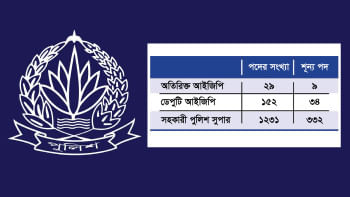Governance for the poor
Good governance is not just about government, it is also about political parties, parliament, the judiciary, the media and civil society. It is about how citizens, leaders and public institutions relate each other in order to make change happen. Election and democracy are an important part of the equation, but equally important is the way government goes about the business of governing. Good governance requires three things: (i) state capability, (ii) responsiveness, and (iii) accountability. This means citizens, civil society and government need to work together to build effective state and provide better governance to reduce poverty.
People want to be governed well and to have a say in what happens in their lives. They want to be safe. They want the chance to earn a decent living for themselves and their families. And they want to be treated fairly by their government and public officials. These aspirations are enshrined in the Universal Declaration of Human Rights. But the reality for many people in poor countries is very different. Democratic state and better governance are essential to combat poverty. States which respect civil liberties and are accountable to their citizens are more stable.
Our government's Poverty Reduction Strategy Paper (PRSP) also gives significant importance and accords high priority to improve governance in the country. Major points stated in the PRSP for improving governance in all spheres of administration, include: expediting separation of the judiciary from the executive appointing an ombudsman, raising the police force as a neutral institution, keeping the administration free from undue influences, ensuring transparency and accountability and undertaking proper measures to provide appropriate clientele service and reduce corruption in government offices. But not much so far could have been done except separation of the judiciary.
The PRSP, however, also identified some constraints to have good governance in the country. The first is the primordial imperative of maintaining political capacity vis-a-vis contenders. Such preoccupations leave little room for active engagement in governance issues. The second is the pressure for responding to the electorate's demand for "development". The third critical constraint is an inherited bureaucratic culture which tends to emphasis "administering" (mianing, control the capacity to punish) rather than "governing" (meaning foster rules and norms to deepen good governance). Promoting a good governance agenda against such deep-seated constraints is easier said than done.
Meanwhile some NGOs have tried to reduce poverty through their efforts and in the process helped to have good governance at local level and further. Their success or failure is, however, relative. But it is certain that they could bring some worthwhile changes in society, specially in the lives of its poorer sections, through their respective programmes, thus reducing poverty of a significant section of people at least. However most of them believe that without improving governance by establishing transparent, accountable and pro-people government poverty cannot be reduced sustainably. Samata, one such NGO specifically working for the landless poor has been working to have better governance from grassroots to national level in which the landless and the marginalised people can have active participation and a say in decision making. It has already become much successful in enabling the poor, marginalised and landless people to organise, make their voice heard, exercise-rights and develop knowledge and skills which not only leas to an improvement in their livelihoods and well-being, but also improve governance at village, union and district level.
Chronically poor people have been heavily dependent on network of patronage to secure access to land, employment opportunities and development benefits. But these networks have been rarely to their advantage, with benefits heavily skewed in favour of more powerful patrons. However, through organisation, landless men and women could create a space for themselves which both challenges existing power relations and provides a platform to make claims and see redress to rights violations and misgovernance.
Over time, Samata has moved away from an approach based primarily on increasing people's ability to demand accountability, to one which encourages greater linkages between citizens and the offices of authority. It places emphasis on including local government and other authorities and power holders as "partners" in the development and reform process. It actively implements a policy of supporting members for election to the local government bodies and other socio-politico-economic decision making committees.
In this way the poor and the marginalised can have representative voice in local decision-making and can ensure that the issues which after poor people's lives are constantly on the agenda. This is also important because it contributes to a process of more equitable decision-making. In addition, it could also make progress in growing further support for pro-poor development and influence of the landless poor apparent in decision making with regard to changes in policy amended as a result of its advocacy. It has been creating awareness on different policy issues such as the need for the repeal of existing char land laws, establishing a separate land commission for he indigenous people living in plain lands, and changes in the sugarcane grinding ordinance.
In order to make governance work for the poor there is a need to have intensive and integrated effort of government, political parties, NGOs, private sector, civil society, media and citizens. Building better governance takes time and has to come from within country, although international partners can help. They see the problem of poverty as primarily structural so there is a need to focus on policy reformation, establish good governance and build the capacity of government of respond to be poor.
Md Abdul Kader is Executive Director of Samata.

 For all latest news, follow The Daily Star's Google News channel.
For all latest news, follow The Daily Star's Google News channel. 



Comments